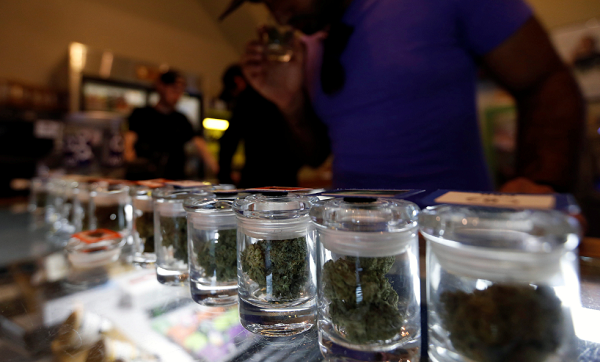Marijuana Legalization: Why Aren't More Black People Involved In The Cannabis Industry?

As nine more states plan to vote on cannabis laws on Election Day, the scope of the many other challenges the marijuana industry is facing has begun to broaden. One aspect gaining attention amid efforts to legalize marijuana for medical and recreational purposes in the U.S. is the lack of diversity within the business infrastructure.
The disproportionate number of black and brown people awarded licenses to cultivate, sell or have any type of entrepreneurial involvement in the marijuana industry has been a growing topic, even causing some prospective business owners to take legal action to address the issue. For instance, a lawsuit was filed in Maryland – where none of the 15 companies that received licenses to grow and sell marijuana identified as black or Latino entrepreneurs – against the Maryland Medical Cannabis Commission on Monday by Alternative Medicine Maryland.
The group requested that a Baltimore City Circuit Court judge halt the state’s medical marijuana program until the commission addresses the lack of diversity among approved growers. Alternative Medicine Maryland’s lawsuit is the third filed against the commission, following two other companies that claimed their license requests were denied in favor of lower-scoring companies.
About one percent of all marijuana dispensaries in the U.S. ore owned and operated by African-Americans or other minorities. State and national laws have been systematically blocking black people who are experienced with marijuana from joining the industry, according to a BuzzFeed report. Black people and other minorities also face significant difficulty in securing small business loans for funding, which Green Rush Consulting Chief Operating Officer Sarah Cross told BuzzFeed could cost roughly a quarter of a million dollars just to start.
Blacks represent the largest group of people arrested and serving sentences for drug possession and trafficking – which kills their chances of participating in any aspect of the marijuana industry no matter how old or small the charge. A 2014 Washington Post report found that white people actually are more likely to do and sell drugs. The report showed that whites were 45 percent more likely to sell drugs in 1980, and said that 6.6 percent of young white adults sold drugs in 2012 compared to the 5 percent of black young adults that did the same. However, blacks accounted for 45 percent of all drug-related arrests as of 2011.
© Copyright IBTimes 2024. All rights reserved.





















